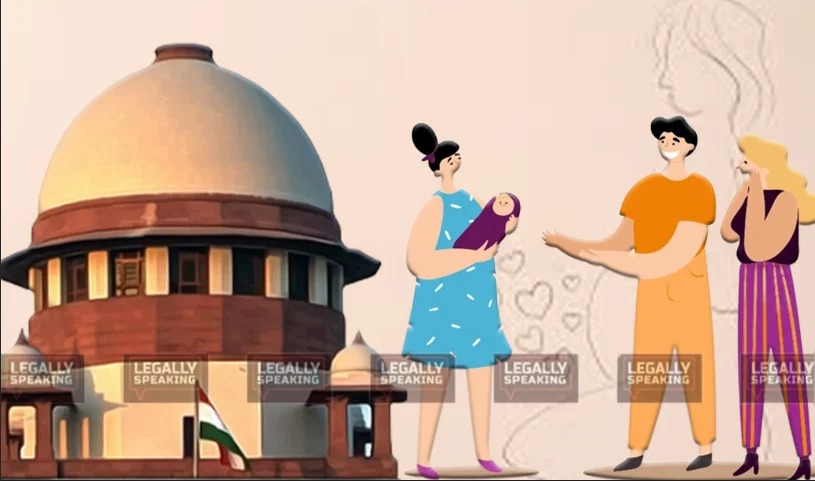
The Supreme Court on Tuesday dismissed a petition challenging union health ministry rule that prohibit donor gametes from being given to couples seeking children through surrogacy.
On March 14, 2023, the Ministry of Health and Family Welfare issued General Statutory Rules (GSR) 179 (E), which stated that: (1) a couple undergoing surrogacy must have both gametes from the intending couple, and donor gametes are not permitted; and (2) single women (widow/divorcee) undergoing surrogacy must use self-eggs and donor sperms to avail surrogacy procedure.
The definition of “gamete donor” in Section 2(h) of The Assisted Reproductive Technology Regulation Act, 2021 is “a person who provides sperm or oocyte with the goal of enabling an infertile couple or woman to have a child.”
A vacation bench of Justice Bela M Trivedi and Justice Prashant Kumar Mishra noted that the notification is already under challenge.
“Why should we consider this petition?” “Are you just filing this case for publicity?” the bench asked.
Sensing the bench’s disinclination, the applicant’s counsel withdrew the plea, and the case was dismissed as withdrawn.
The petition filed by advocate Nalin Tripathi challenged the rules on the grounds that they violate the provisions of the Surrogacy (Regulation) Act, 2021, which grants infertile couples the right to parenthood.
“The said GSR has the effect of undermining the provisions of the Surrogacy (Regulations) Act, 2021, which is a welfare legislation that grants infertile couples the right to parenthood.” “The said GSR is not only a violation of Articles 14 and 21 of the Indian Constitution, but it is also contrary to the objectives of the enactment; thus, the instant Writ Petition is being filed under Article 32 of the Indian Constitution of 1950,” the plea stated.
According to the report, infertility has a significant negative social impact on the lives of infertile couples, especially women, who frequently face violence, divorce, social stigma, emotional stress, depression, anxiety, and low self-esteem.




